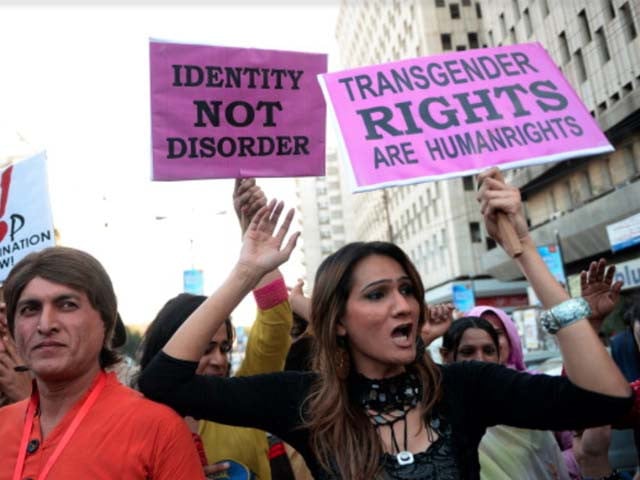
Registration of transgender people and issuing CNICs is their fundamental right – SHRC
Karachi
Sindh Human Rights Commission (SHRC) has asked National Database & Registration Authority (NADRA) to facilitate the transgender persons in all NADRA centers of the province without any discrimination on the basis of gender identity, as guaranteed by the Constitution of Pakistan, and intimate the compliance.
SHRC, in a letter to the NADRA authorities, stated that it has received a complaint from Sana Khan, a transgender activist of Hyderabad through a Committee Member of SHRC on 16th October, 2023 that NADRA has issued a notification under letter dated 13th June 2023 and ceased issuing the Computerized National Identity Card (CNIC) to Transgender persons. The same notification was withdrawn on 25th September, 2023, but NADRA offices in Hyderabad informed that the Central System is yet to be updated.
SHRC further stated that the transgender community in Pakistan is already marginalized and denied its constitutional rights. Ceasing the provision of CNIC cards to the transgender persons violates the various fundamental rights granted to the citizens. This includes the right to dignity (Article 14), right to life (Article 9), and the right to equality before law (Article 25). Additionally, it also effects the right to freedom of movement (Article 15), freedom of assembly (Article 16), freedom of association (Article 17) and freedom of trade, business or profession (Article 18) as without the CNIC card, citizens cannot enjoy these rights.
SHRC said that NADRA has relied on a judgment by the Federal Shariat Court in the case of Hammad Hussain versus Federation of Pakistan and others (Shariat Petition 05-I OF 2020), which on 19.05.2023 ceased the operation of certain provisions of the Transgender Persons (Protection of Rights) Act, 2018 “with immediate effect.” These provisions included Section 2(f) (containing the definition of “gender Identity”), Section 2(n), Section 3 (related to legal gender recognition), and Section 7 (related to inheritance) of the 2018 Act.
“However, it must be pointed out that multiple appeals have been filed against the FSC judgment regarding the Transgender Persons (Protection of Rights) Act, 2018, including Farhatullah Babar etc. vs. Hammad Hussain (Shariat Petition A.2/2023)”
Article 203D of the Constitution of Pakistan stipulates the powers, jurisdiction and functions of the FSC. A proviso states that ‘’Provided that no such decision shall be deemed to take effect before the expiration of the period within which an appeal therefrom may be preferred to the Supreme Court or, where an appeal has been so preferred, before the disposal of such appeal.’’
The Supreme Court (SC) has interpreted Article 203D in Kalsoom Begum V/S Peran Ditta and others (2022 SCMR 1352) on 27.01.2022 at Para 6 of the judgment and stated that: “…Since the appeal is pending adjudication, the said decision of the Federal Shariat Court (impugned therein) has not come into effect, because the second part to the proviso to clause (2) of Article 203(D) of the Constitution…’’
SHRC was established under the Sindh Protection of Human Rights Act 2011 for the promotion and protection of human rights in the Province of Sindh. The Government of Sindh constituted the SHRC under Section 3 (1) of the Act on 9th May 2013. Under Section 2 (iv), the SHRC has an overarching mandate for the rights relating to life, liberty, equality and dignity of the individual guaranteed by the Constitution of the Islamic Republic of Pakistan and legal safeguards and protections described under the Sindh Protection of Human Rights Act 2011.
Under Section 4 of the Sindh Protection of Human Rights Act 2011 (and 2023 Amendment), the SHRC has the powers and functions to ‘’4 (iii) formulate, implement and regularly update policies with a view to protect human rights;’’ and (v) ‘’review the safeguards provided by or under the Constitution or any law for the time being in force for protection of human rights and recommend measures for their effective implementation.’’ (PR)
___________